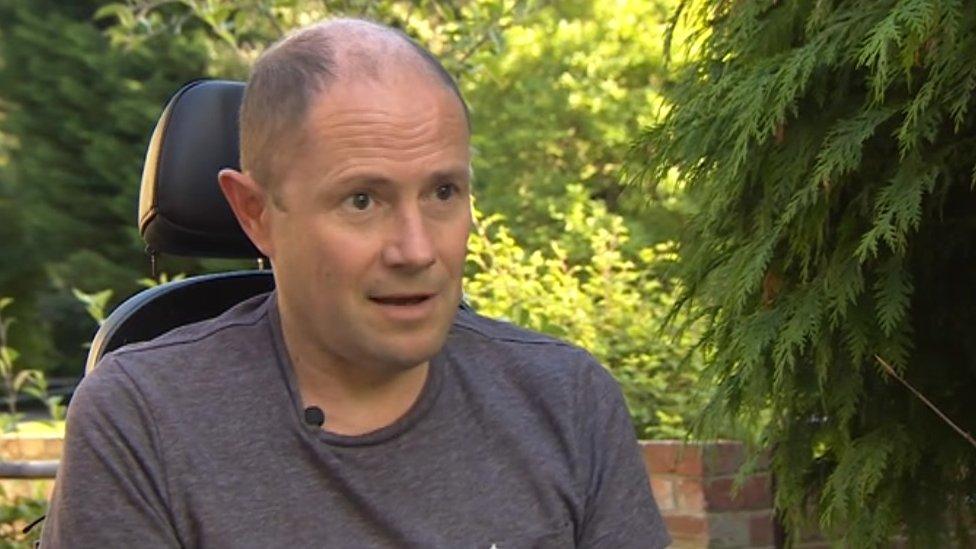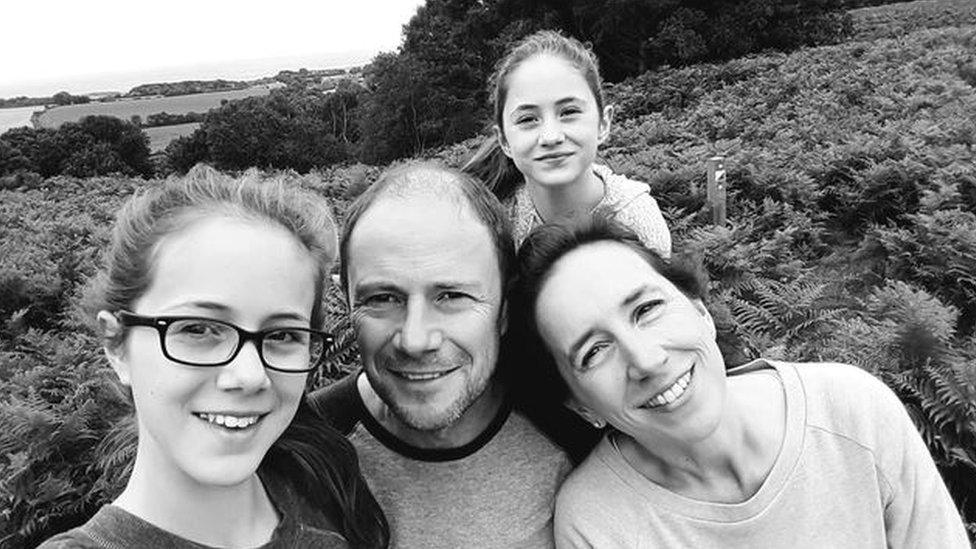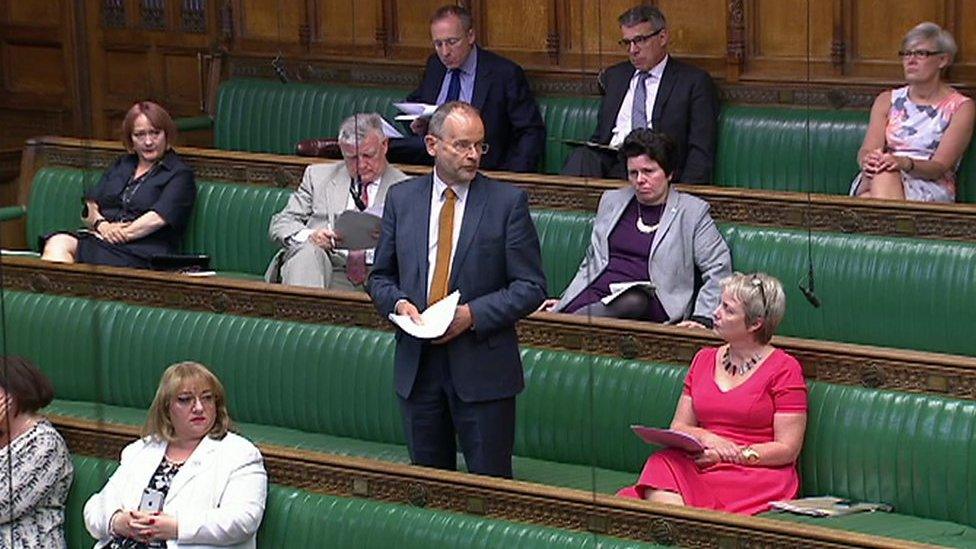Assisted dying: Terminally ill man challenges law in High Court
- Published

Phil Newby said the "cruel" law does not allow people with incurable illnesses to have a "dignified and civilised ending"
A terminally ill man challenging the law on assisted dying has to wait to learn if his High Court case can go ahead.
Phil Newby, 49, was diagnosed with Motor Neurone Disease (MND) in 2014 and cannot walk or use his hands and lower arms.
He raised £42,000 for the legal challenge as he wants people to have a right to a "civilised ending".
On Tuesday, High Court judges reserved their decision until a later date.
It is illegal in England and Wales to encourage or assist a death and holds a prison sentence of up to 14 years.
Lawyers for Mr Newby, from Rutland, said he is facing an "inhumane and intolerable" deterioration.

Mr Newby's family said they support his attempt to change the law
Paul Bowen QC said: "The claimant wishes to be able to choose an assisted death, at home, when he considers the emotional and physical discomfort of existence outweighs the enjoyment he still receives from living.
"That point has not yet been reached, but it is foreseeable...with the comfort of knowing he had that option available, the claimant would be better able to enjoy the time he has left."
Lawyers representing the Secretary of State for Justice argued the case should be rejected as the courts have already ruled on similar matters.
Mr Bowen said their bid would take a different approach by cross-examining international witnesses and evidence and argued the door was still "open for determination of the 'right' case".
Last November, MND sufferer Noel Conway was refused permission by the Supreme Court to challenge the law.
Judge Lord Justice Irwin and Mrs Justice May said no-one could consider these cases "without feeling immense sympathy for the people involved".
A spokesman from Care Not Killing, said: "This legal challenge to introduce assisted suicide to those with terminal, or chronic conditions seeks to rip up long held universal protections, that ensures the law treats all people equally.
"Removing these protections will put vulnerable people at risk of abuse and of coming under pressure to end their lives prematurely."
If you have been affected by any of the issues in this article you can visit the BBC Action Line.

Follow BBC East Midlands on Facebook, external, Twitter, external, or Instagram, external. Send your story ideas to eastmidsnews@bbc.co.uk, external.
- Published18 September 2019

- Published4 July 2019

- Published6 October 2015
